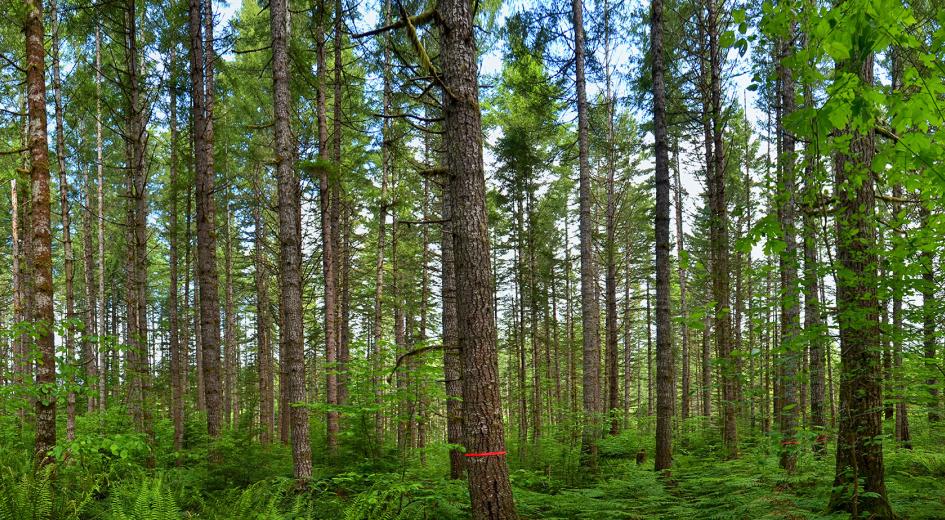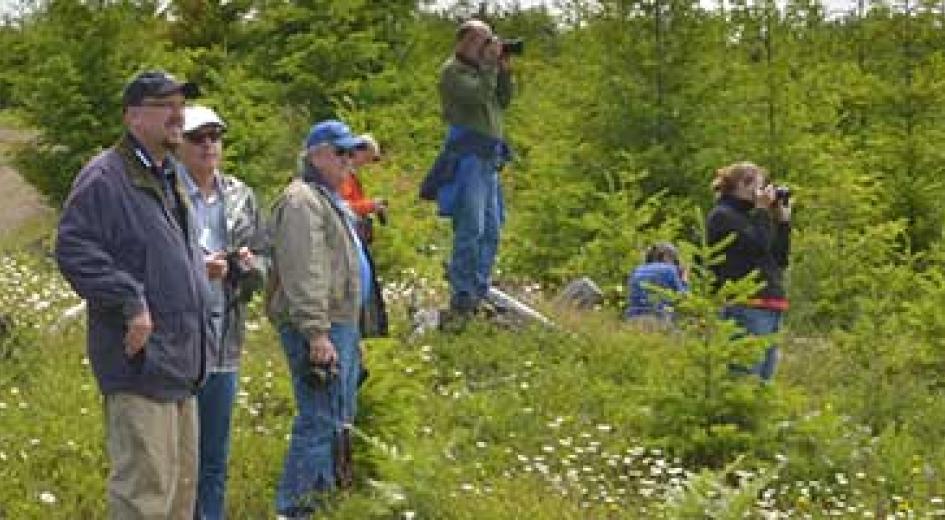Generations of growth: The legacy of a family Christmas tree farm
December 17, 2024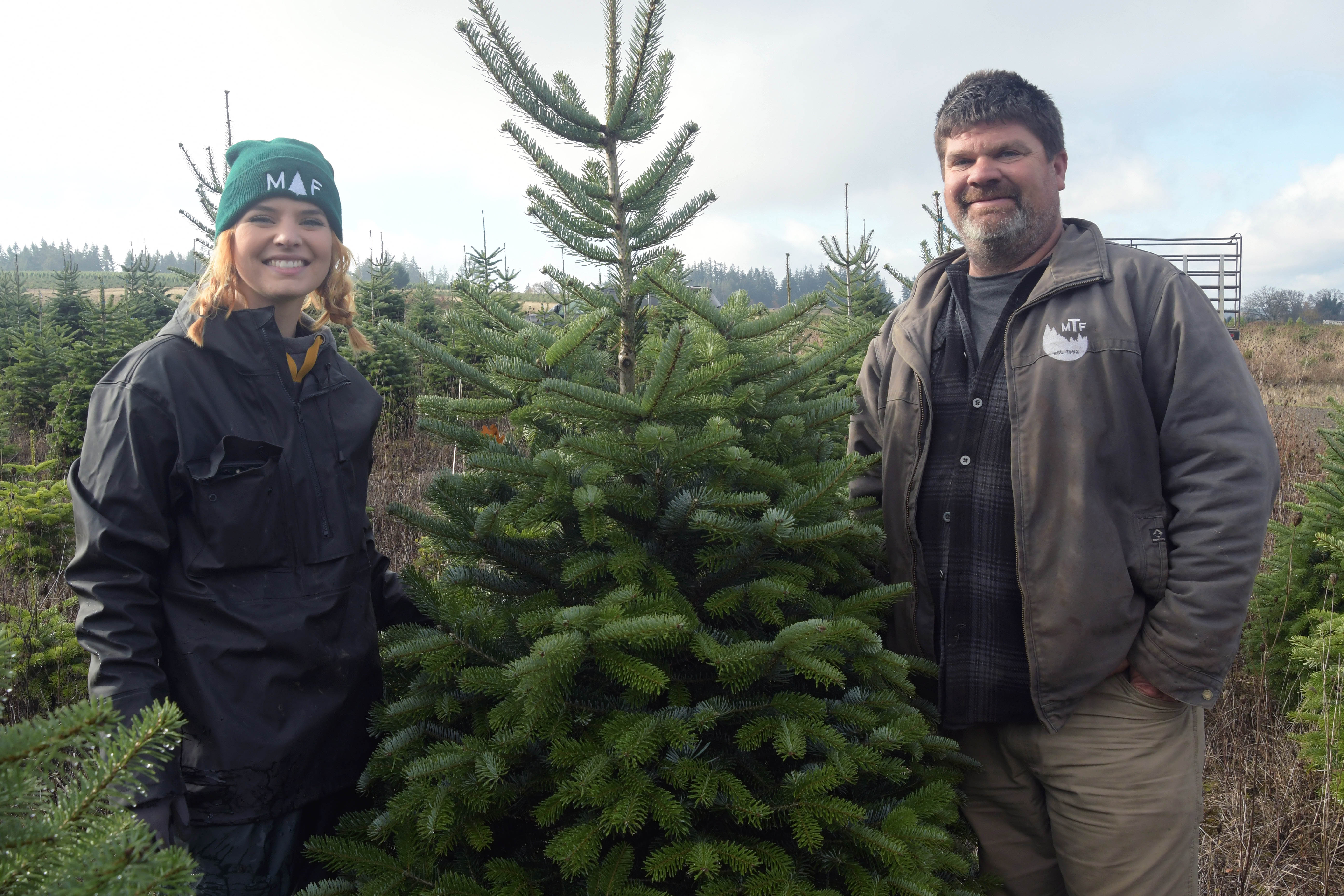
Nestled in the rolling hills of Oregon’s Willamette Valley is Molalla Tree Farms (MTF), a Christmas tree farm run by the Smith family that has flourished for three generations. What began as a wheat field has blossomed into a thriving tree farm, now operating on 200 acres of land and preparing for the fourth generation to take over.
I visited MTF this fall as they were harvesting and baling trees for the holiday season. While there, I learned that the history of the farm reflects the hard work and passion that have defined the family’s connection to the land.
The Smiths are part of a long tradition of family Christmas tree farming in Oregon. The state is the top U.S. producer of Christmas trees, many grown on family farms like MTF. (You can learn more about Oregon’s Christmas tree industry by visiting the Oregon Forest Resources Institute’s Christmas tree demonstration plot at The Oregon Garden in Silverton and checking out our new interpretive signs.)
Today, Greg Smith runs the day-to-day operations of MTF. Under his guidance, the farm has grown to supply around 7,000 trees to families in Portland and other parts of Oregon, and even more trees are shipped to other states across the country. With Greg’s daughter, Brooklynn, learning from her father, MTF’s future seems to be in good hands, continuing a legacy built on commitment and care.
The farm grows four types of trees: Douglas-fir, grand fir, noble fir and Nordmann fir. Greg and his team carefully nurture these trees for years, from the time they are seedlings until they’re ready to harvest ahead of the holiday season. Each year, the farm loads about 14 semi-trucks and 15 U-Haul trucks with freshly harvested Christmas trees for delivery to the lots where they will be sold. It is a significant undertaking, but seeing the trees head off to find new homes for the holidays brings satisfaction, Greg says.
The Smith family legacy of growing Christmas trees in Oregon began in 1957 with Greg’s grandfather, Vic, who purchased the land with the intent of growing trees. The former wheat field became home to Douglas-firs and, later, noble firs and other Christmas tree varieties as Greg’s father Brian took over the farm in 1985, followed by Greg in 1992.
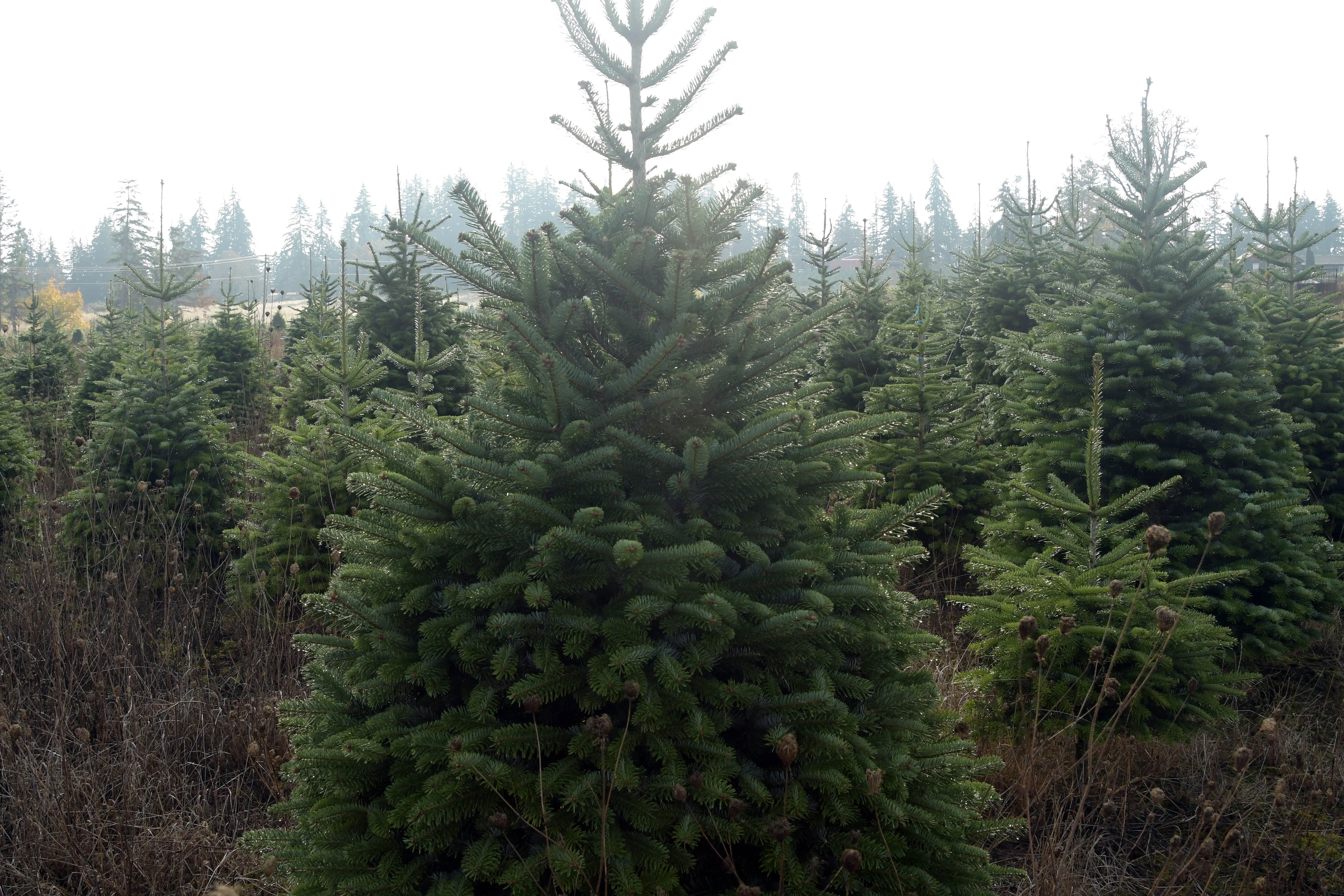
Although Greg did not initially plan to run the business, life took its course. “I went to school for economics, not farming,” he laughs, recalling how the Christmas tree business helped pay his way through school. “When the business was up and running, I rolled with it.”
Challenges have always been part of MTF’s journey. “It takes about eight years to grow a noble fir,” he notes. “And you spend all that time hoping the trees stay alive.” With no income until harvest, Christmas tree farming requires long-term investment, patience and perseverance, he says.
Extreme weather is another hurdle, especially for tree health. MTF has adapted over the years, learning to manage the trees during heat waves or wet springs. When the 2021 heat dome hit, they had to trust their scorched trees’ health would return once wetter months began to set in.
Quality is a priority at MTF, and it shows in every tree. “We emphasize needle retention,” Greg says. “If the needles fall off easily, the tree isn’t healthy.”
Even after the trees are cut, maintaining their health is essential to ensuring they stay fresh for families to enjoy. Greg emphasizes the importance of getting the trees into water as soon as possible after they are cut and brought indoors. If buying from a lot, it is best to cut the bottom of the tree to ensure proper absorption of water for the tree to last the holiday festivities, and many lots offer this service.
MTF is not just about trees; it’s about community, Greg says. The holiday season creates job opportunities, supporting the local economy. This includes hiring seasonal workers, who are no longer needed after the growing seasons for most agricultural products have ended, to help harvest Christmas trees.
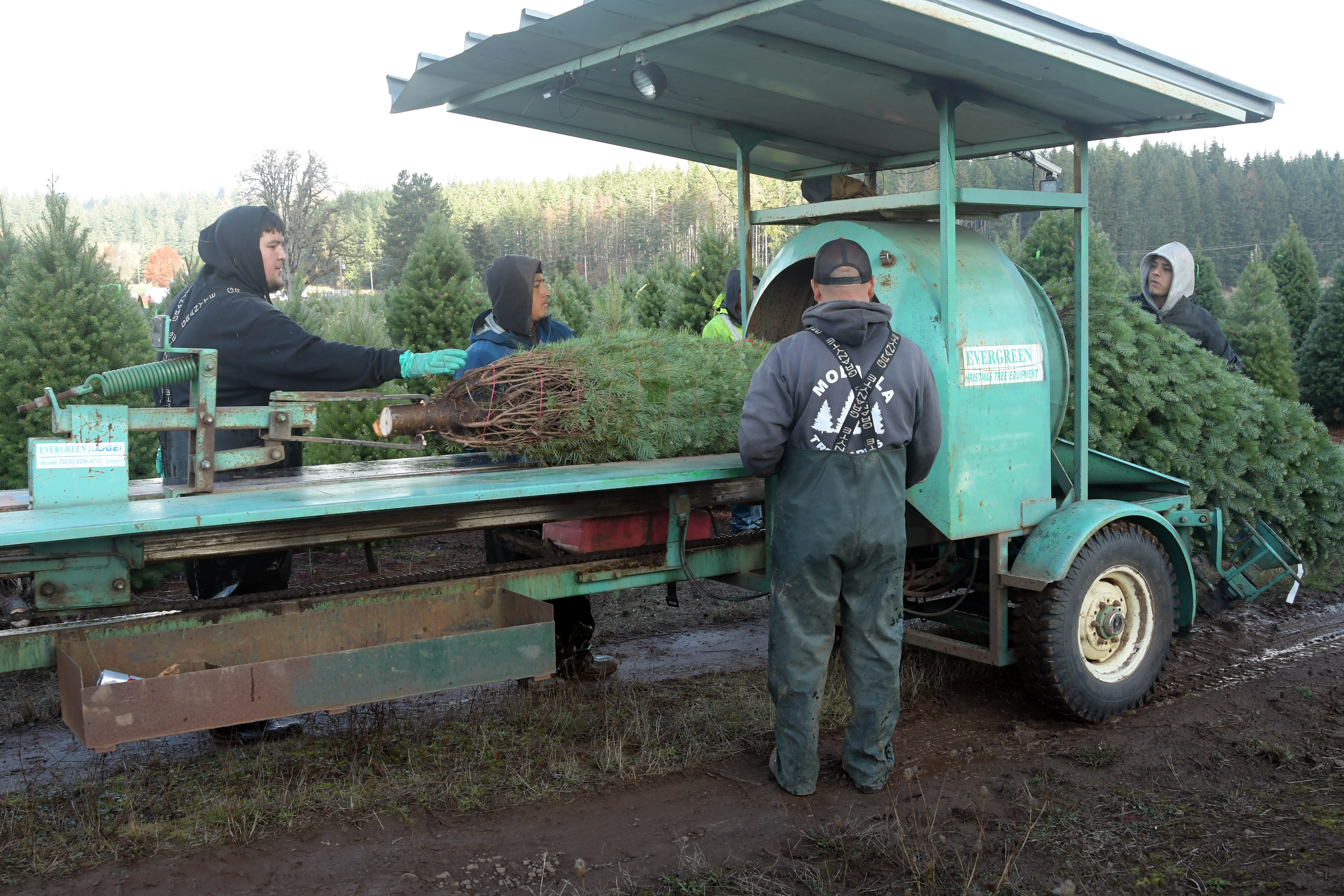
Transportation is also a key aspect of their operation. While many farms rely on helicopters, this family farm uses shuttle trucks to minimize damage. “We load the trees directly onto the trucks in the field. This reduces the handling and risk of damage,” Greg explains.
Looking to the future, MTF continues to evolve. “I lease the land, but it works well for us,” Greg notes. With the fourth generation eager to be involved, the farm’s legacy is in good hands.
As she learns about growing Christmas trees from her father, Brooklynn says there’s a lot to love about working on her family’s farm, including “being outside, being in the green, not having to sit at a desk, and just feeling the elements, because it’s so peaceful.”
As they look ahead, the family’s mission remains clear to me: supporting local businesses and keeping the legacy alive. Buying a Christmas tree is more than just a purchase. It’s about sustaining a tradition, supporting local economies, and keeping this legacy going for generations to come.
Henry Thomas
Social Media and Outreach Intern


